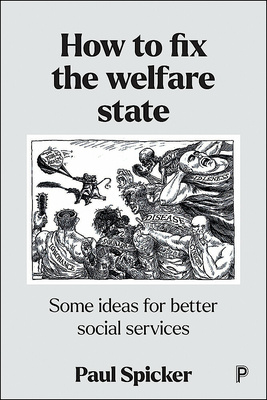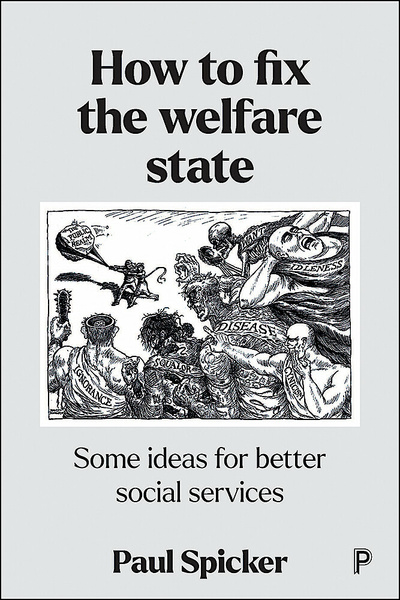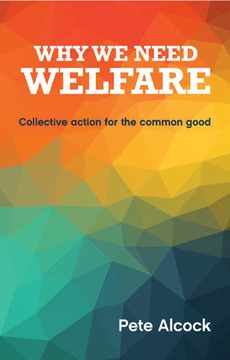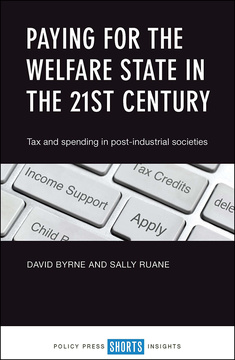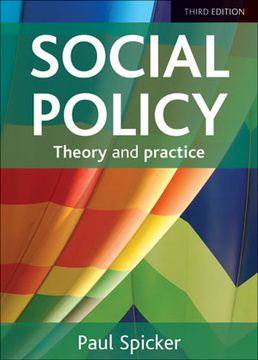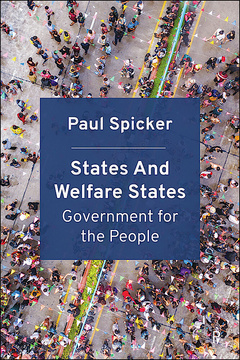Published
Feb 1, 2022Page count
168 pagesISBN
978-1447364603Dimensions
234 x 156 mmImprint
Policy PressPublished
Feb 1, 2022Page count
168 pagesISBN
978-1447364597Dimensions
234 x 156 mmImprint
Policy PressPublished
Feb 1, 2022Page count
168 pagesISBN
978-1447364610Dimensions
234 x 156 mmImprint
Policy PressPublished
Feb 1, 2022Page count
168 pagesISBN
978-1447364610Dimensions
234 x 156 mmImprint
Policy PressThe British welfare state is traditionally understood to be comprised of five main services: health, housing, social security, education and the ‘personal social services’, such as social care and child protection.
In this book, Paul Spicker offers an original take on the role of the state in relation to these services, along with three other areas where institutional services have been developed: employment services, equalities and public services, such as roads, parks, libraries and rescue services.
Dismissing false and misleading narratives, this book profiles the real problems that need to be addressed and offers inspiration for a better path forward.
“An honest and realistic appraisal of the current state of welfare. The analyses and insights are illuminating and thought-provoking and should be required reading for a wide range of professionals.” Steve J. Hothersall, Edge Hill University
“Spicker draws upon his four decades of writing to analyse the current position of 'the welfare state'. An unmissable contribution written in the best traditions of social administration.” Bob Hudson, University of Kent
"This is a slim volume with a large remit. It is also refreshing." Journal of Social Policy
Paul Spicker is Emeritus Professor of Public Policy at Robert Gordon University. His research has included studies of poverty, need, disadvantage and service delivery. His books on social policy for Policy Press have discussed the poverty, social security and the theory of social policy, and a leading textbook, 'Social Policy: Theory and Practice'.
1. The welfare state
2. Social security
3. The National Health Service
4. Social care
5. Education
6. Child protection
7. Housing
8. Employment services
9. Equalities and human rights
10. The public services
11. Towards a stronger welfare state
Afterword: a personal note







